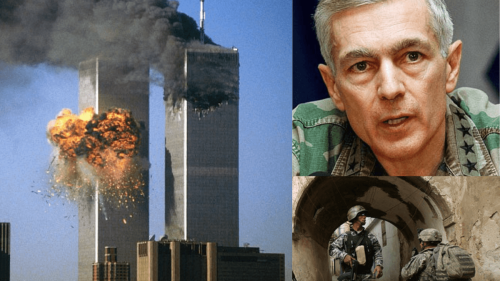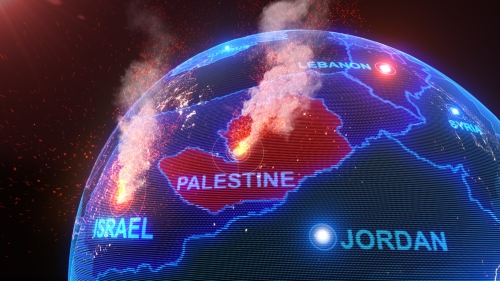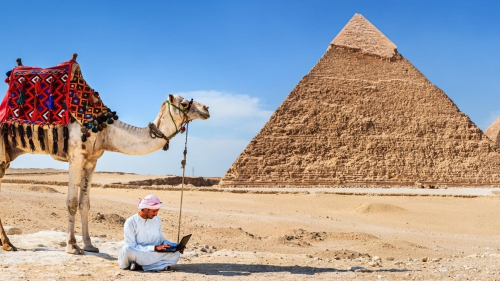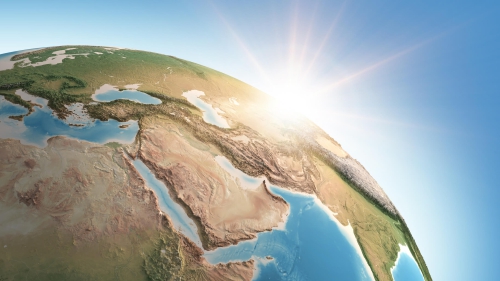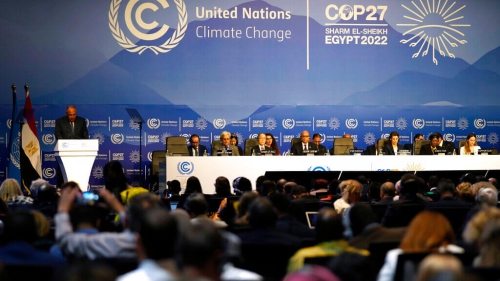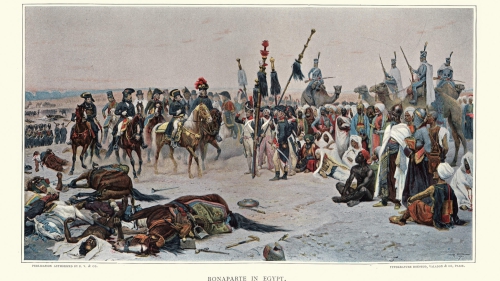After revolution, Arabs regain dignity and hope
 |
Reporting from Cairo - His hands thick, the color of pewter, he bends steel rods in the city dust.
"It's different being an Egyptian after the revolution," says Mohammed Mahmoud, sweating at the edge of a construction site. A boy laborer nods. A flash of metal brightens the dirt. "We gained our dignity back."
The revolts shaking North Africa and the Middle East are about many things, but the most potent is a yearning for respect after decades of repression and promises betrayed.
Men like Mahmoud don't see the world in ideologies; they want to draw their pay and build their dreams. The Arab world had denied them that for too long. Then suddenly the known order cracked and unrest spread from Tunis to Cairo to the bloody streets of Tripoli.
"Dignity became what they were looking for," says Randa Habib, a Jordanian writer. "This was the essence of the rage."
What comes next is unclear, but the leaders who eventually emerge will be answerable to emboldened voices and restored pride. They felt this once in the 1950s, when Egyptian President Gamal Abdel Nasser offered the vision of pan-Arabism. It failed, and the Arab spirit since then has frayed like a neglected tapestry under monarchies and autocracies.
Once bonded by disillusionment and frustration, Arabs share courage and a belief in the possible. There will be failures and disappointments in coming months. Poverty will cling and political freedoms will be manipulated as the euphoria of the moment is likely to slip into the tedious burden of incremental change.
But, for now, every Arab is a brother, a sister. Egyptian doctors truck medical supplies across the border to the wounded in Libya. Workers in Tunisia send encouragement to protesters in Jordan. Bloggers in Saudi Arabia are inspired by what is unfolding beyond the harsh confines of their Islamic kingdom.
"I look at the television and see what is happening in Egypt and in Tunisia and Libya, and I think, they are my brothers," says Said Ahmed, a bandage over his nose where he was hit by a rock during protests in Yemen. "I have never met them, but we are brothers. We are all Arabs. We have a long history, and now we are standing up together and saying, 'We are free people.'"
Many Arabs suggest that what is happening is epochal, a new beginning for an Islamic world that once - from the 8th to the 13th centuries - was a paragon in science and the arts. That "golden age" was followed by generations of colonialism, inept and corrupt rulers, political alliances bound to oil and resources, the creation of Israel and the rise of Islamic terrorist organizations.
"We Arabs used to be at the center of the culture. We invented mathematics. We were the scholars, the scientists. The world turned to Arabia for its books," says Anwar Hamady, a protester in Yemen.
"And now, look at us. We are the poorest people in the world, backwards and tribal and illiterate. Why? Because we have let ourselves be led around like dogs by leaders, by thieves. Now, with our revolutions in Egypt, and Libya and Tunisia, and in Yemen, we are saying no. We are saying we are dignified. We are proud."
Much of that pride had been sapped by generations who blamed Israel and the United States for exposing and exploiting weaknesses across the Middle East. Arabs watched their international stature slip. Their authoritarian leaders denied them political expression, even as most Arabs grew suspicious of Islamic extremism and saw, through a prism of emerging technologies, democracy creep across the planet.
But for many the larger problem was economic turmoil, especially in countries such as Egypt, where reforms were masks to further benefit the rich at the expense of the poor and middle class. Millions of Arabs fled their nations for jobs in Europe and the oil-rich states of the Persian Gulf. They sent money home and grew bitter, often not seeing their children or families for months, if not years.
"It became the hardship of surviving," Habib says. "There were no heroes."
Haitham Ahmed has dirty hands and a single man's passions. He fixes tires in south Cairo, where for two years he has courted his fiancee. He wants to marry, but he has no money, and she won't offer her dowry until he does. He felt sometimes as if he had lost part of himself along the way, especially when the Egyptian police forced him to pay bribes.
"When I used to go and meet my fiancee, I'd have to put an extra 50 pounds [about $8.50] in my pocket just to pay the police so I could get home at night," he says. "I felt unsafe for too long. But I don't feel that way anymore. For the first time, I think Egyptians feel free. We feel as one hand."
A TV crackles in the dim of his shop. His world is changing amid newscasts and scenes of bloodshed from other lands.
"I feel sorry for the Libyans," he says, "They are just like us. No one stands in front of a bullet unless he is truly oppressed."
A big man sits under a tree in a ragged square not far from Ahmed's shop. He rises and steps past boxes of potatoes and carrots and hanging blooms of cauliflower. Mahmoud Hatab, husband and father, doesn't know whether new jobs are coming or promises will be kept. He's sure of one thing:
"The revolution went beyond its limits," he says. "We stood beside each other after being silent for so many years. Respect comes with that."
Men walk toward the mosque. Boys in sandals follow through the dust. Metal rods slide one after the other near the construction site, stiff gray snakes as long as telephone poles. Mohammed Mahmoud bends them by tugging on two iron bars. He's an accountant, but there are no desk jobs, only this from morning until dark.
"You have to hope," he says, "that after the new pride something better is coming."
*****
Source: Los Angeles Times
Related Suggestions
Just as Islam shook up & gave a concept of self-respect, personal responsibilty & mutual assistance all those centuries ago, the same again today. The Quran constantly exhorts one to ponder & reflect upon the material creation, to utilize it for the benefit of all. Iqra, the reading culture is vital. An alternative title of the sacred guidance is Al-Furqan i.e. Discernment/critical thinking.
When Muslims turn to the holistic spirit, not with mere lip-service, revolutionary changes can happen, just as they did centuries ago. There is nothing new under the sun & the message is transcendant not immanent, the best guide from outside of transient temporal & fallible creation.










